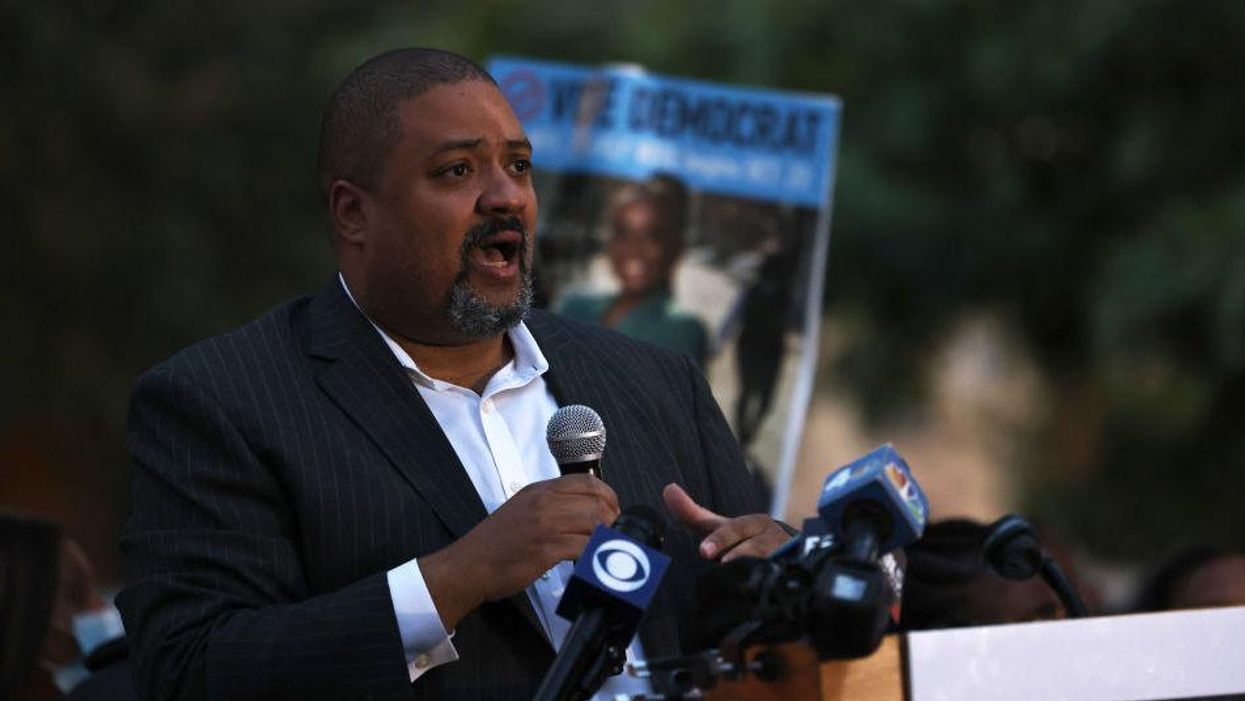
Michael M. Santiago/Getty Images

Fundamental change has come to Manhattan's district attorney's office.
New Manhattan District Attorney Alvin Bragg, who was endorsed by the New York Times, released his “Day One” memo on Monday that includes, among other new policies, a pledge to stop seeking prison sentences for many crimes.
One of the more controversial policies Bragg is pushing to prosecutors in his office is that they should "not seek a carceral sentence" — unless required by law — for crimes other than homicide, serious violent felony crimes "in which a deadly weapon causes serious physical injury," domestic violence felonies, certain sex offenses, public corruption cases, and other white-collar crime.
Bragg permits exceptions only "in extraordinary circumstances based on a holistic analysis of the facts."
But Bragg goes even further. The memo states that in such cases where incarceration is the presumption, he states that "there is also no presumption that incarceration is the appropriate outcome."
Additionally, Bragg says his office will never seek a sentence of life without parole, and even in "exceptionally serious cases such as homicides where lengthy periods of incarceration are justified," Bragg instructs his prosectors to consider "restorative justice as a mitigating factor" in the sentencing process.
Bragg also instructs prosecutors to lessen certain charges levied by police officers. For example:
"ADAs should use their judgment and experience to evaluate the person arrested, and identify people: who suffer from mental illness; who are unhoused; who commit crimes of poverty; or who suffer from substance use disorders," Bragg instructs.
Bragg also places emphasis on diversion, which is "an alternative procedure in a criminal case where the prosecution is interrupted through a deal between the defendant and the prosecutor where the prosecutor either dismisses the charges completely or does not bring any charges to begin with."
Meanwhile, Bragg explicitly tells prosecutors to stop charging marijuana misdemeanors, fare evasion, resisting arrest, certain trespassing cases, certain obstruction cases, and prostitution.
Manhattan police officers who spoke to the New York Post expressed outrage over the policies.
One high-ranking police officer said, "The identical platform has not worked out in San Francisco, Chicago, Philadelphia and Baltimore. It will lead to more young lives lost to gang violence and innocent people being hurt both physically and emotionally."
"This is outrageous. He was elected to enforce the law. If he wanted to change them, he should have run for a state office," another cop said.
Patrick Lynch, head of the New York Police Department's largest union, reacted, "Police officers don’t want to be sent out to enforce laws that the district attorneys won’t prosecute."
The policies were otherwise described as "insane" and the "wholesale usurpation of the criminal code."
Mayor Eric Adams (D) said Tuesday that he has not yet reviewed the policies.